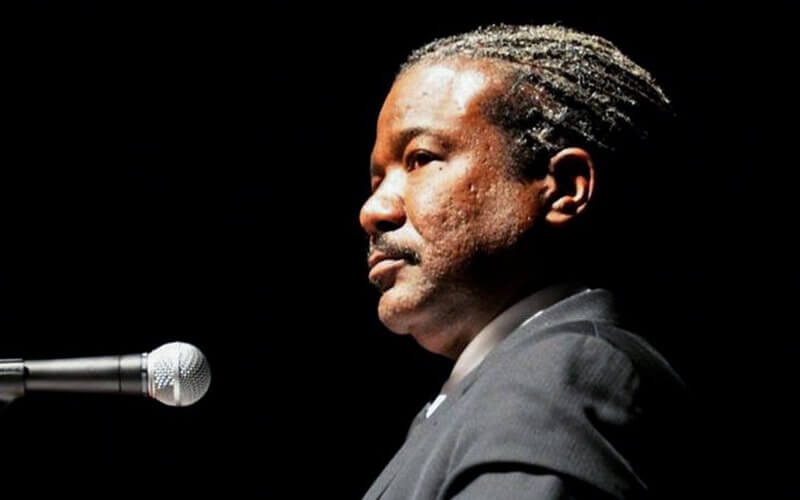
“You might want to know how someone who grew up in Compton — a place that had one of the highest murder rates, per capita, in the world — went from a place of violence to becoming a scholar of Martin Luther King Jr.?” said Gerald C. Rivers, during a Titans Together speaker series event to honor MLK Day. Rivers, an actor, often delivers and discusses the speeches given by MLK.
“When I was growing up, my best friend was murdered in his front yard,” Rivers explained. “I was supposed to be at his house when the murder took place, but a flat tire on my 10-speed bike prevented me from being there. It got me thinking, what was my life about?
“Although I am an actor by training and trade, when I discovered the words of Martin Luther King, it had a profound effect on me. At first, I thought trying to deliver his speeches was far too lofty a goal to live up to…but I realized you don’t need to see the entire staircase to take the first step. To achieve the beloved community, every person must respect and know the worth and dignity of every other person.”
Rivers pointed out that it is the sincere desire to improve the life condition of yourself and others that can propel you forward.
Propel Others Forward
“We have an opportunity to do better,” he said. “When we all had to stay home because of COVID-19, it forced people to be with their families, to listen, to have conversations they might not have had. If not for COVID-19, we might have been too distracted to pay attention to the George Floyd killing. But we had to sit and be with what was going on.”
“While we were all waiting at home, people got to see what was going on with the Black Lives Matter movement. They saw systems filled with inequity — racism, poverty, lack of health care, homelessness.’
Some lessons Rivers learned from King include:
- You don’t have to do everything, but you can do something.
- You don’t have to be charismatic, you just have to care.
- You don’t have to be brave, you just have to be willing.
Rivers encouraged audience members to listen — to yourself, your heart, your mama. He noted that most of us don’t listen — we’re just waiting so we can jump in and make a point.
“Don’t listen with the intention of letting people know how you feel,” he said. “Sometimes it’s okay to shut up. We all want to be respected, valued, loved, cared for…to feel we’re a part of something greater than ourselves. We all have unique gifts and perspectives. The rest of the world is waiting for you to bring your gifts forward.
Treat Others With Dignity and Respect
“Everyone needs dignity and respect. There’s a whole lot of hurtin’ going on. And there’s the saying, ‘Hurt people hurt people,’” he continued.’ “Some people have uncared for wounds from childhood,” he said. “Figure out, what am I angry about? What are they angry about? Anger comes from hurt—somebody did me wrong. Forgive someone even if you don’t think they deserve it. Forgive yourself and forgive others. Not forgiving someone is like drinking poison and expecting the other person to die. Let it go. Today.”
Rivers noted that MLK always advocated nonviolence even when others were being violent toward him.
“He said people don’t always know how to respond to nonviolence,” Rivers said. “When you decide to be peaceful, not violent, you may think you have all the answers…until you get hit in the mouth. But when you take that first blow, that’s not the end. You have to be patient and loving again and again and again … avoid the internal violence of spirit. Understand that turning the other cheek might bring suffering at times. So engage in something we call love.”
Rivers said that giving MLK’s speeches changed his life and he hopes by offering these lessons to others, they can change their lives, too.
“This year, MLK would have been 92. We keep talking about him because he spoke truth to power. We can’t forget or let it go.
We Are all Connected
“Campuses are not without challenges. But this next generation is more open, loving, accepting than any in American history. Look at the BLM protests. Folks who didn’t look like us also got on the front line during the protests and that helped.
“America itself is a dream,” Rivers continued. “We’re made up of people of different races, cultures, religions. We all want love and peace and success. We all want the same things. When you realize that, it helps. Whatever affects one directly, affects another indirectly. We are all connected. The sooner we get that, the better we will be.